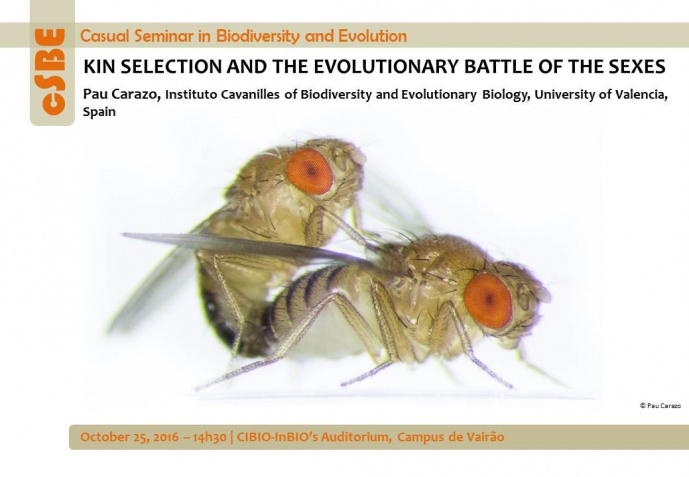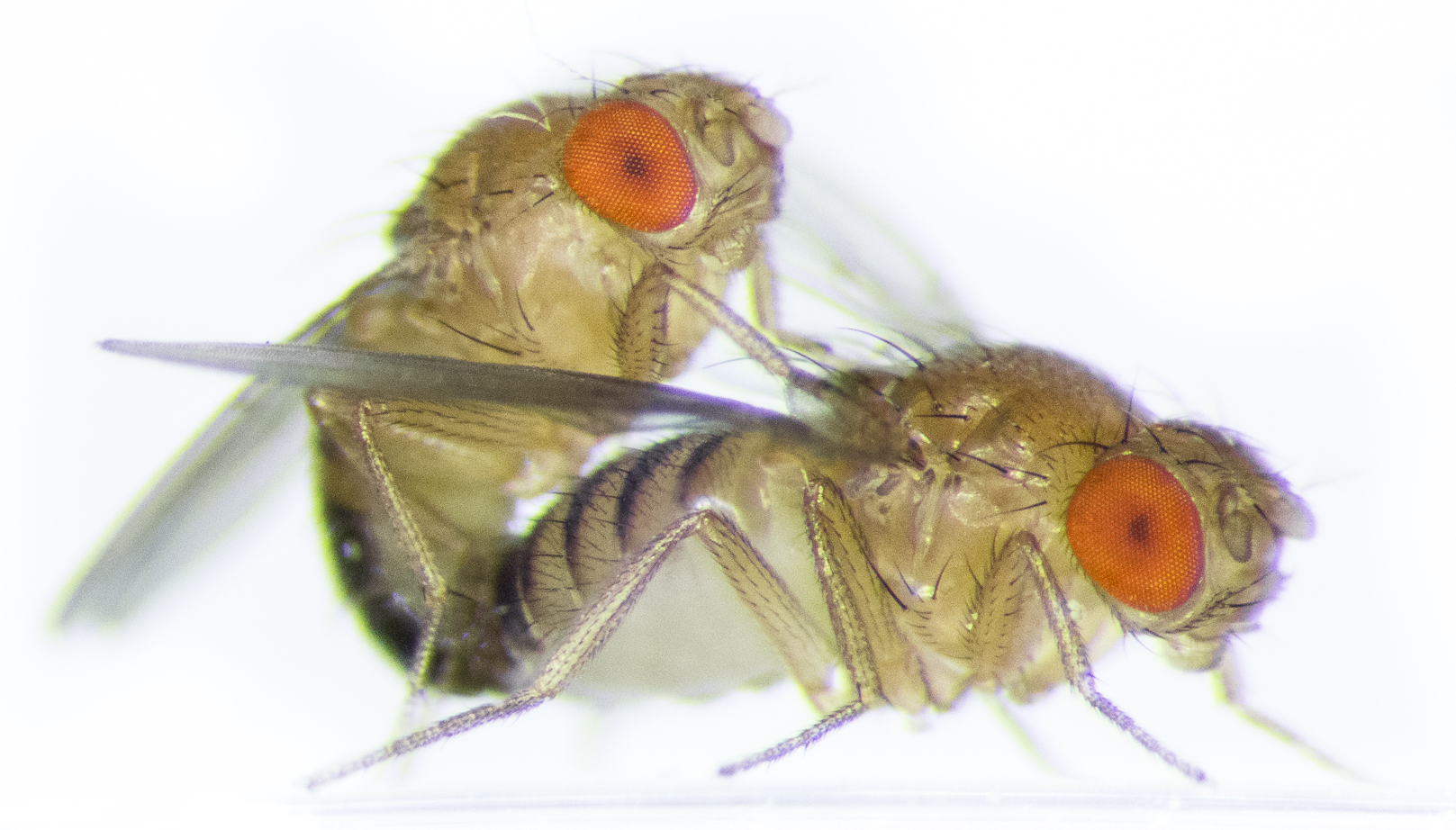KIN SELECTION AND THE EVOLUTIONARY BATTLE OF THE SEXES

CASUAL SEMINAR IN BIODIVERSITY AND EVOLUTION

We now know that the evolutionary interests of the sexes rarely coincide, so that male and female fitness cannot be maximized simultaneously. Considerations of sexual conflict are hence fundamental to understand why males and females age at different rates, the costs of sex and the evolution of life-histories at large. For example, male-male competition often gives rise to adaptations that are harmful to the same females over which they compete, which can deviate them from their evolutionary optima and have pronounced repercussions for the population as a whole in a “reproductive tragedy of the commons”. A critical gap in our knowledge is to understand if and how kin selection, selection on traits due to their effects on the spread of genes via the reproduction of relatives, may modulate female harm and contribute to relax the evolutionary tension between the sexes. Kin selection has aided understanding of cooperation and altruism in multiple contexts, but its integration with sexual conflict ideas has been largely neglected. In this talk, I will review recent theoretical and empirical evidence, and ongoing research, suggesting that kin selection may be cornerstone to understand the evolution of sexual conflict, and female harm in particular, at a very general level.
Pau Carazo had a passion for behaviour and evolution since an early stage. Thanks to an ASAB international scholarship and a Spanish undergraduate research grant he enrolled in the Ethology lab (University of Valencia) in 2003, to work on chemical communication in beetles. Pau then went on to conduct a PhD on the function of social signals in lizards in that same lab, based at the Cavanilles Institute of Biodiversity and Evolutionary Biology in Valencia (2005-2010). After his PhD, in 2011, he conducted a first post doc at Macquarie University (Sydney), where he worked on the evolution of cognitive syndromes using lizards as a model system. Throughout this time, he also continued working on beetle behaviour, and in particular in sperm competition and sexual conflict in beetles. This work led him to conduct a 2 year (2012-2014) Marie Curie Fellowship at the Edward Grey Institute in the University of Oxford, where he worked in Drosophila melanogaster to address fundamental questions about the evolution of ageing and sexual conflict. In 2015, he settled back at the Cavanilles Institute in Valencia with a ‘Ramon y Cajal’ research fellowship to build its own independent group. Pau present research aims to address fundamental evolutionary questions concerning the interplay between ageing, sexual conflict and kin selection.
[Host: Miguel A. Carretero, Applied Phylogenetics]
Image credits: Pau Carazo